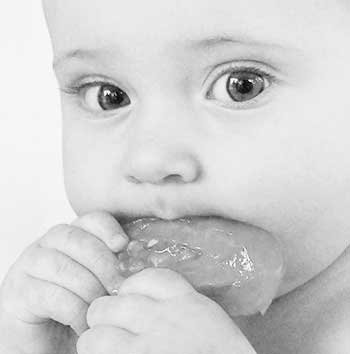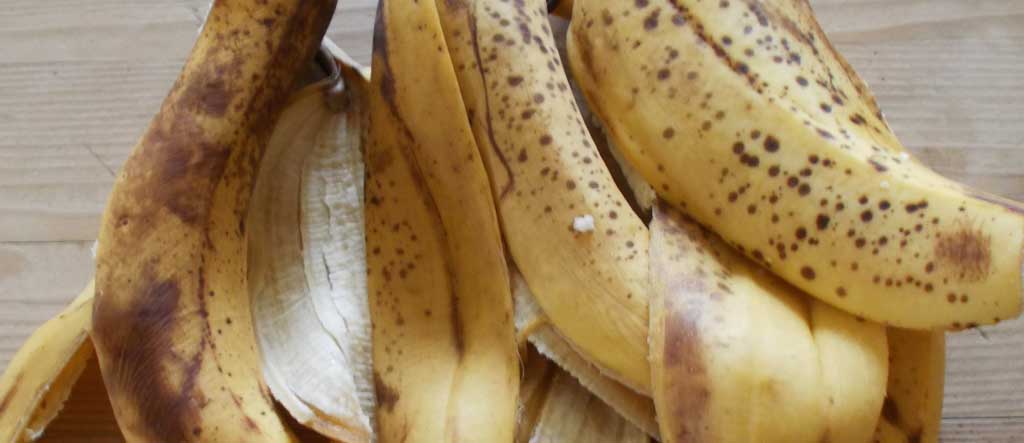When is my baby ready to eat solid food?

Most parents begin introducing solid foods around 6 months of age. This is because a baby’s first teeth start to grow in at around 6 months and because most infants are born with a 6 month store of iron in their liver. However, there are three developmental milestones that can signal your baby is ready for solid foods.
3 signals your baby is ready for solid food.
When all 3 signals are evident, your baby is ready for solid food. The age at which these requirements occur will differ with each baby.
1) When baby can sit up all by himself – usually around 7 ½ months
It is difficult to digest solid foods lying down.
2) When baby can pick up and put food in his mouth
Most babies begin to put things in their mouths around 5 months. This is their way of exploring, feeling and tasting things. By 7 ½ to 8 months most babies are happily putting everything, including their big toes in their mouths.
3) When baby has teeth with which to break down the food
Baby teeth begin to erupt at about 6 months of age, and one pair appears roughly each month thereafter until all 20 are present. The incisors, which are closest to the midline, appear first, 4 on the upper gums and 4 on the lower gums. All 8 teeth are usually all through by about 11 months. The incisors are designed to cut into food, at this age the best foods are fruits and vegetables. Raw food is the easiest to digest as it contains the enzymes needed to digest it. Begin with small amounts.
When introducing solid foods, even puréed foods, always feed on a full stomach of milk. This is to ensure that your baby’s nutritional needs are met and that baby explores the new foods more out of curiosity than hunger.
Introduce one new food at a time every 3-4 days, so it will be easier to identify food intolerances / allergies.
Pay attention. If you notice any type of negative reaction (such as respiratory, skin, or GI issues), wait 1-3 months before trying that food again.
Start with gentle ripe fruits:
- Ripe bananas (brown spots on the skin), pear, grated apple or avocado.
- Pieces of apple or pear can be placed in a little net bag or mesh feeder to prevent any lumps breaking off and prevent choking. Baby will happily suck on this for a long time and no lumps can come through the little holes.
- After a few weeks other ripe fruits can be introduced. Seasonal fruits are best as they are the freshest and when possible choose organic food to limit ingestion of food chemicals and insecticides.
- Dried fruits are also a good option, however they are probably the single biggest source of sulphur dioxide so read the labels, look for organic and sulphur-free.
Related posts: Infant Nutrition
